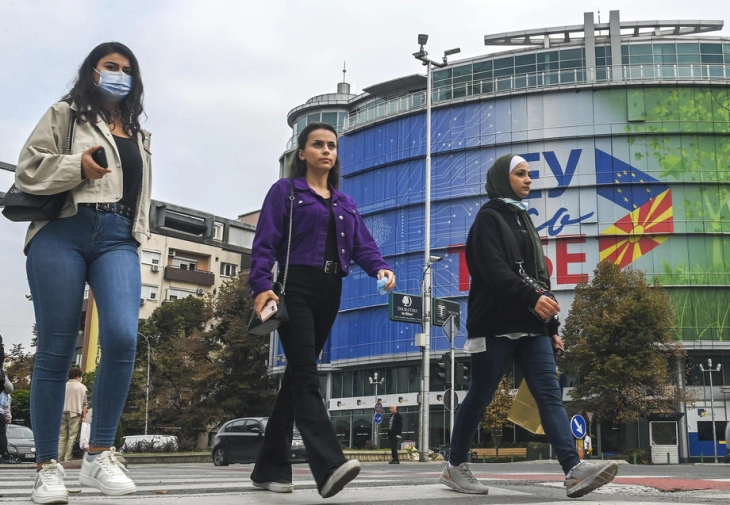Bulgaria’s gov’t and opposition have to unravel knot with N. Macedonia: “Mediapool.bg” analysis

Sofia, 24 November 2021 (MIA) – Despite pressure from the United States and the European Commission and the fact that North Macedonia’s European integration is an indisputable interest of both Bulgaria and the European Union, the chances of Sofia approving the negotiating framework with Skopje are still unreal, unless Skopje demonstrates readiness to accept Bulgaria’s demands, the Sofia-based web-portal “Mediapool.bg” reports.
“If Skopje gets a prospect to join the EU, it will help pro-European circles to take anti-populist solutions. But, if there are no positive signals from Bulgaria, it is most likely that ant-Bulgarian rhetoric will become even stronger in North Macedonia. It makes Bulgaria’s responsibility even greater, both for the government and the opposition. If there is an issue requiring efforts to be made to find a rational solution oriented toward long-term perspective, it is to unravel the knot with North Macedonia,” says the analysis.
Skopje, it adds, has high hopes from the new Bulgarian government to accelerate its EU integration efforts, but it has to realize that Bulgaria will change its position once Skopje changes its behavior.
According to the analysis, the “Macedonian issue” will be one of the top topics of the negotiations for forming a new coalition government in Bulgaria since at least two parties poised to be in the new government coalition – the Bulgarian Socialist Party (BSP) and There’s Such People (ITN) – are strongly opposing any compromise with North Macedonia, while the winning parties, We Continue the Change (PP) and Democratic Bulgaria (DB), are calling for new approach in making progress and allowing Skopje to join the EU.
“From PP’s comments, it can be concluded that the formation will try to ‘disguise’ the Macedonian issue into its economic dimensions, redirecting the focus from the painful history topic. It is very unlikely that this will be embraced by BSP and ITN, which won’t accept compromises, no matter how insignificant that might be, because it might contribute to the voters of these two parties and GERB as well, and the nationalists to accuse the new government of ‘treason’,” says Mediapool.bg.
The article mentions that Bulgarian President Rumen Radev, who was re-elected in Sunday’s elections, this past months has redirected the focus of the countries’ relations from historical disputes to “respect of the rights of Macedonian Bulgarians,” considering it something that the European partners of Bulgaria would understand more while at the same time it allow Skopje to demonstrate readiness to solve disputes without delving into issues about identity and language.
“One of Bulgaria’s main demands is North Macedonia to include Bulgarians in its constitution to have equal right with other communities, something the Macedonian authorities have said are ready to do only immediately before or after the country becomes EU member. For now, Skopje authorities are refusing to do anything about it, but Bulgaria will not change its position unless the country does something,” says the article.
It is being mentioned in the analysis that as part of its relations with the country, Bulgaria is abiding by the framework position adopted in Parliament in 2019, which established the country’s “red lines”.
“Changing of the Bulgarian position would require new debates on the matter in Parliament, which will surely stir up a populist wave. GERB’s position couldn’t be known because since the Boyko Borissov-led government ‘has made a mess’ with Skopje, he has to anyone’s surprise changed the position and started promoting swift resolution without proposing how,” reports Mediapool.bg.
Any decision in favor of North Macedonia, no matter how it might be prepared, says the analysis, will have high political cost unless it is accompanied by clear action by Skopje. “It remains unclear if the parties calling for fresh approach could be prepared to pay that cost.”
The analysis concludes that PP’s future government is faced with pretty complex task. “The four parties will have to agree over multiple compromises over too many issues and policies. It is why Skopje will have to realize that it has to take serious steps involving the Bulgarian demands and to stop investing hopes only on the pressure from the US and the EU on Sofia,” “Mediapool.bg” writes.







